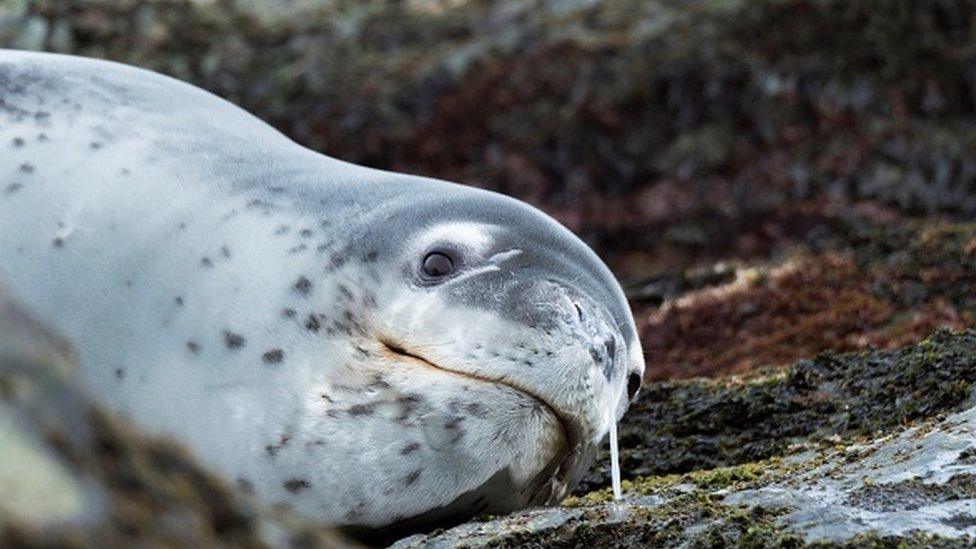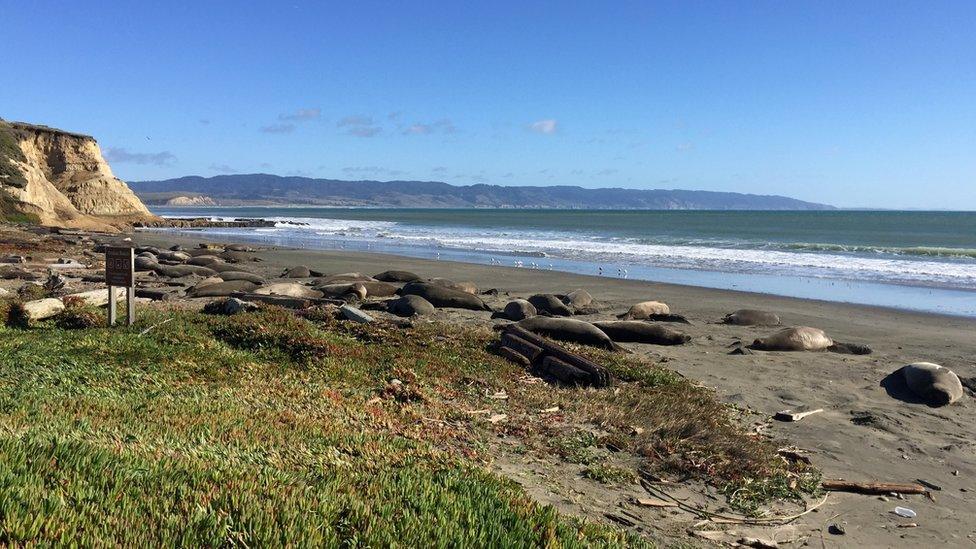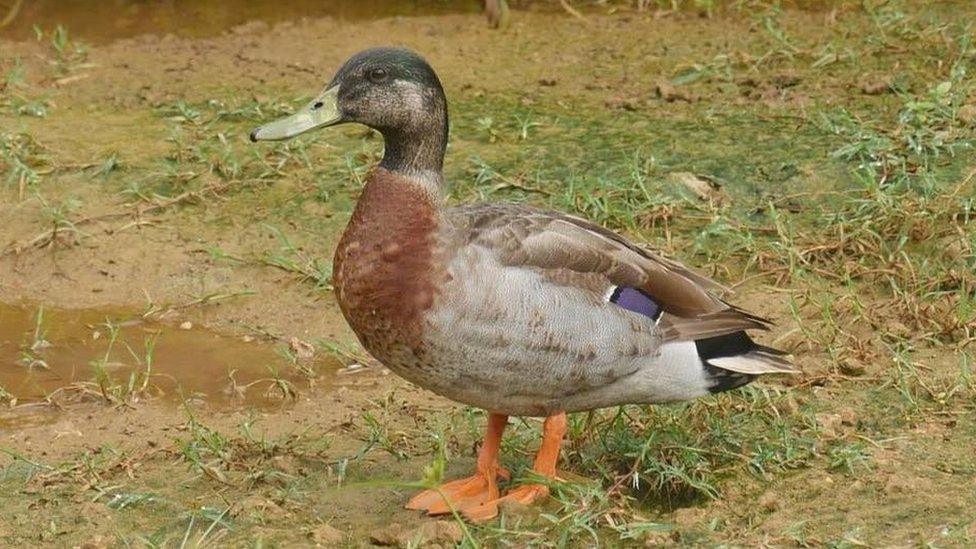Memory stick found in frozen seal faeces in New Zealand
- Published

A leopard seal (file picture)
A slab of seal poo used for scientific research in New Zealand has led to the unlikely discovery of a USB stick full of holiday snaps.
The sample, known as scat, had been stored for over a year before being thawed out.
Researchers analyse seal faeces to assess the health and diet of seals in New Zealand waters.
The fully functioning stick contained images of sea lions and a video of a mother playing with her baby.
The sample was submitted by a vet who had been monitoring a sickly-looking leopard seal on Oreti Beach, Invercargill, on New Zealand's South Island.
The device was in good condition "considering where it had come from", external, the National Institute of Water and Atmospheric Research (NIWA) said on its website.
The researchers had let it dry out for a few weeks before investigating the contents. But the discovery of the stick is a cause of concern.
Allow X content?
This article contains content provided by X. We ask for your permission before anything is loaded, as they may be using cookies and other technologies. You may want to read X’s cookie policy, external and privacy policy, external before accepting. To view this content choose ‘accept and continue’.

"It is very worrying that these amazing Antarctic animals have plastic like this inside them," volunteer Jodie Warren said.
The owner of the mystery stick has not been located.

You may also like:
You may also be interested in:

"The only clue to who might have taken them is the nose of a blue kayak," NIWA said.
The research centre added that the return of the USB stick would come with a price - a new sample of scat with which to continue their research.
"The more we can find out about these creatures, the more we can ensure they are looked after."
- Published31 January 2019

- Published28 January 2019
